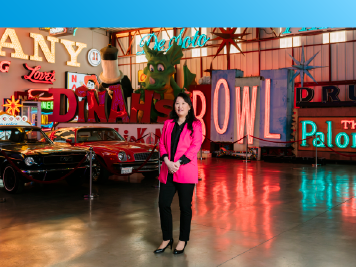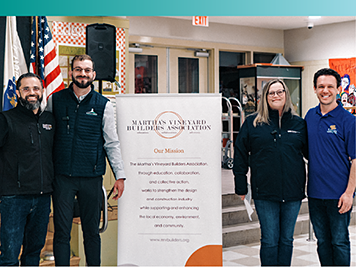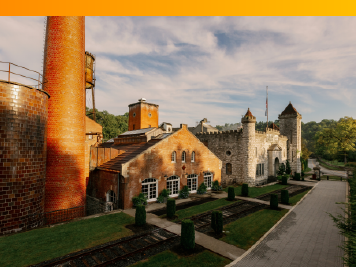Katie spent nearly two weeks in Warsaw, Poland, and at times actually crossed into Ukraine. The tenacious Texan camped out at the border, sleeping in a car, to be close at hand providing aid to fleeing families.
“I would just cross back and forth and help carry luggage, babies, anything—any way I could help right there on the border in Ukraine,” she says.
“I flew home and the entire plane ride, I just felt like we were still being called to do more. So, I came home and registered as a nonprofit.”
Katie founded Be Human Kindness, which helps Ukrainian refugees find shelter and begin the complicated, emotional relocation process. She soon returned to Europe, hired four Ukrainian women, and rented a 170-bed private hostel. She later opened a longer-term housing facility, laying the groundwork for Be Human Kindness’ robust relocation program. The organization also partnered with train stations, UNICEF, the Ukrainian and American militaries, and large refugee centers. It became the go-to resource for the most vulnerable refugees. To date, Be Human Kindness has relocated roughly 20,000 Ukrainian families to 31 different countries. Staff also helps refugees navigate the immigration process and keeps a database of families the organization has helped to connect them to additional services.
“They’re all just incredibly hopeful,” Katie says. “When they were fleeing, they didn’t know what they could expect when they entered Poland or the surrounding countries. They’re all living independent, safe lives until they can go back to Ukraine.”
Though circumstances can change quickly, Katie and Be Human Kindness are pushing on. Recently, they’ve been fostering connections with international non-governmental organizations and organizations involved in the orphan crisis before the war began. Roughly 2,500 Ukrainian orphans have been evacuated into Poland. Be Human Kindness is working with orphanages and providing support above what the government can provide.
They’re also reimagining their relocation efforts to help more refugees since European countries are approaching critical mass. There are about 9 million Ukrainian refugees living throughout Europe and the organization’s relocation resources are nearly tapped out. Katie says she’s now looking at locations closer to home.
“Europe’s completely full. There’s nowhere to relocate them to besides the United States and Canada,” she says. “We have begun fostering relationships with church communities, small groups, and individuals to step up and sponsor Ukrainian families to come to the United States. So far, I’ve sponsored 33 Ukrainians who have relocated to Fort Worth. And then through these church relationships, Be Human Kindness has about 65 Ukrainians who have relocated, and many more are on our waitlist.”
Among the first Ukrainian refugees the Stadlers assisted stateside were the Shevchenkos. Alex, Svetlana, and their two children had fled their home near the Crimean border after Russian troops began executing former members of the Ukrainian military. They faced a harrowing journey through Russian occupied territory and parts of Russia itself before arriving in the US, where the Stadlers were waiting with open arms.
“It’s impossible to prepare for being a refugee,” says Alex. But since landing in Fort Worth, they’ve built a friendship with the Stadlers and others in the community, though at first, they faced a bit of culture shock since everything they knew about the US—and more specifically, Texas—came from Hollywood movies. Nonetheless, the Shevchenkos have been made to feel “accepted” in their new home.
“It’s a blessing to come here,” Alex says. “We don’t feel like refugees, we feel like friends.”



